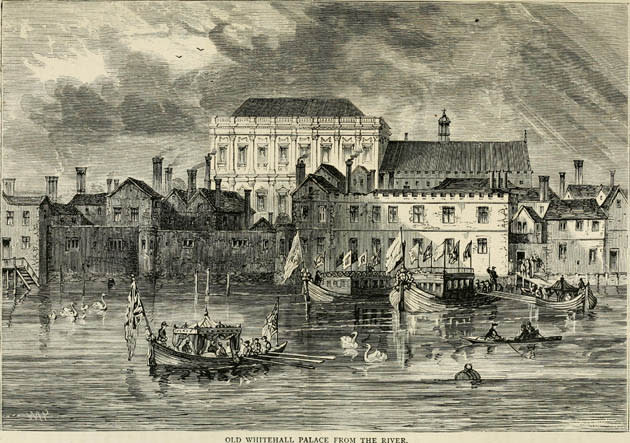Why Uber's ridesharing revolution could be undone by archaic laws and aging industry

Like electric cars, the decentralization of broadcast television, renewable energy and other burgeoning technologies, the world of "ridesharing" -- largely embraced by consumers -- is facing tremendous pushback from entrenched players around the world.
These entrenched players take archaic laws and employ them to keep new competition out. This concept isn't new to business, or even transportation business. The fight over Uber, Lyft and other ridesharing programs is the same fight that's played out across human history time after time: A new technology threatens to upend an existing technology, and the industry supported by the existing technology stands together to push back against the inevitable. Remember buying CDs at your local music store? Exactly.
DISRUPTION AND CHAOS
In the case of Uber and its ilk in New York City, the entrenched players are the so-called black cab companies. We'll spare you the minutiae of different forms of hired car in NYC -- this is what matters: Yellow cabs are only legally allowed to pick up street hails, while black cabs are only allowed to operate on an arranged pick-up basis.
Initially, this meant that ridesharing services weren't allowed to operate in NYC at all. But when NYC's Taxi & Limousine Commission (TLC) announced and began a pilot program for yellow cabs to use services like Uber, black cab companies banded together to sue the NYC government and the TLC. They even succeeded in temporarily shutting down the pilot program.
New York City's ridesharing battle is a great example of the challenges rideshare companies face globally. In Belgium, taxi regulation law dictates that Uber will be fined €10,000 (about $13K) for reach ride it offers. In France, the existing taxi industry continues to protest services like Uber, which they say threatens their livelihood (as in NYC, French taxi licenses are very costly). Those protests have turned violent in at least one case.
ARCHAIC LAWS AND ENTRENCHED PLAYERS
There are two major hurdles that ridesharing services must overcome to operate freely: existing laws/regulations/licensing and entrenched industry.
Rather than combat these issues from the start, ridesharing companies took their case to consumers. Uber opened in 2009 starting with San Francisco, while Hailo opened in 2011 in London, and Lyft also began operations with SF (but in 2012). Each company is a variation on the concept of "ridesharing," but how they work for you and me is generally the same across the board: A mobile phone app scans for available rides near your location, and when it finds them, you can choose to be picked up. Some have payment options built in, while others don't. And some make it optional. Uber, for instance, offers a variety of transportation services depending on the locale (including a helicopter for one day).
After establishing a base of drivers and passengers, ridesharing is now being challenged by both legislators and existing taxi/limousine companies.
AFTER EXISTING LAWS ARE CHANGED, THE REAL BATTLE BEGINS
Using NYC as an example once more, the initial challenge was a legal loophole; since ridesharing apps act as a means to "hail" a car to a location -- which is partially illegal in NYC -- yellow cabs couldn't use the service. Yellow cabs make up the vast majority of NYC's car services. Only after the city's Taxi & Limousine Commission declared a trial were ridesharing services allowed to operate.

Of course, having cleared the initial hurdle of the TLC, New York's black cab companies filed suit.
Their suit claims that services like Uber blur the line between traditional yellow cab and black cab services, that it disadvantages elderly customers (a demographic that tends not to own smartphones) and that it enables discrimination (ridesharing apps allow drivers to choose who they pick up).
Let's be clear: Black cab companies are not concerned with any of these complaints. The reason the lawsuit exists is to attempt to prevent companies like Uber from encroaching on long-established businesses. It's a lawsuit against innovation, against consumers and -- above all -- a lawsuit over money. It's a lawsuit against the potential for competition.
FOUR-WHEELED TORTOISES
This same scenario exists in some form everywhere that ridesharing faces legal challenges. Are ridesharing companies perfect? No. Are they in the business of making money? Yes, absolutely. Their ability to even compete with existing car services is the issue. Uber and others offer a service that consumers want: an easier, better experience taking car services. Consumers should be able to make the choice.

And history agrees. In 1650s London, the "watermen" who operated ferries whisking Londoners up and down the Thames petitioned their government to limit horse-drawn carriages. Rather, the watermen specifically petitioned for the removal of "these upstart four-wheeled tortoises." Their reasoning? That their business "hath been long reputed very useful to the Commonwealth," and that the watermen and families would be "utterly ruined." They also argued that the horses ate too much hay and defecated in the streets. In so many words, they argued that "these guys are trying to compete for our business!" Less than 10 years later, horse-drawn carriages were officially regulated by English law, and, well, there aren't so many watermen rowing down the Thames these days.
It might not be Uber, or Lyft, or Hailo, or any of the services operating right now, but the world of taxi services is ready for innovation. Though we're currently stuck in the quagmire of entrenched players fighting legal battles to keep that innovation at bay, time will win. It always does. Hopefully for us that's sooner than later.
[Image credit: AP Photo/Mark Lennihan (lead taxi photo), Uber (video one), TestTube (video two), AP Photo/Paul White (Spanish protest photo), Internet Archive Book Images/Flickr (Thames Watermen)]

